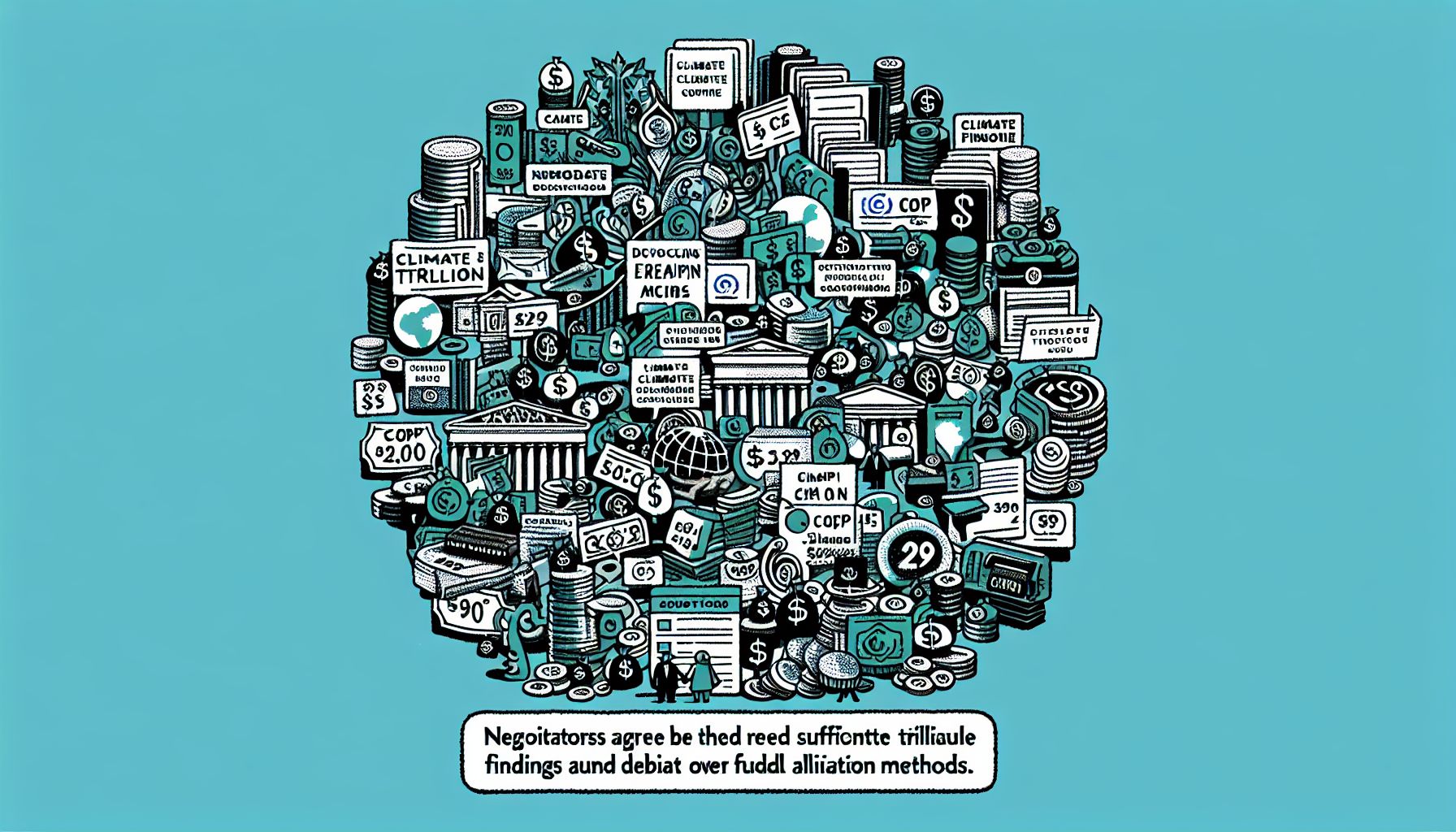COP29 Seeks Trillions in Climate Finance for Developing Nations

Baku, Thursday, 14 November 2024.
The COP29 summit in Baku focuses on securing substantial climate finance for developing countries. Negotiators agree on the need for trillions but debate persists over funding sources and allocation methods, highlighting the urgency of global climate action.
The Urgent Need for Climate Finance
As the COP29 summit progresses in Baku, the primary focus is on mobilizing significant financial resources to help developing nations combat the adverse effects of climate change. The discussions underscore a pressing need for trillions of dollars, with delegates grappling over the sources and distribution of these funds. This urgency echoes the sentiments of UN Secretary-General António Guterres, who emphasized that the world is on the brink of a climate catastrophe, urging immediate action to cut emissions and dismantle barriers to climate finance[1].
Challenges in Funding and Allocation
Despite broad consensus on the necessity of financial aid, the summit is fraught with debate over ‘how,’ ‘where,’ and ‘by whom’ these resources should be allocated, as highlighted by Ali Mohamed, Kenya’s climate envoy[2]. The previous target of $100 billion set in 2009—only met in 2022—serves as a stark reminder of the challenges in meeting climate finance goals. The friction among leaders reflects deep-seated disparities, as wealthy nations have historically pledged support but often fall short in delivery, leaving vulnerable countries in limbo[3].
Proposals and Potential Solutions
To address these challenges, innovative proposals have been tabled, including levies on aviation and financial transactions, aiming to generate new streams of funding[4]. Simon Stiell, the UN Climate Chief, stressed that climate finance is not charity but a necessity for global stability, urging nations to adopt a new climate finance target as the existing $100 billion pledge is set to expire this year[5]. These proposals highlight the need for a collective, strategic approach to finance climate action, particularly for those nations bearing the brunt of climate impacts.
The Path Forward: Global Cooperation
With the summit continuing until 22 November 2024, the outcomes of COP29 will be pivotal in shaping future climate agreements and financial commitments. The establishment of a new collective quantified goal (NCQG) for climate finance is anticipated, providing a framework for consistent support to developing nations[6]. Moreover, the operationalization of the ‘loss and damage fund’ agreed at COP28 is underway, with mechanisms being developed to ensure effective implementation. The success of COP29 hinges on the ability of world leaders to set aside differences and collaborate on solutions that are equitable and sustainable.